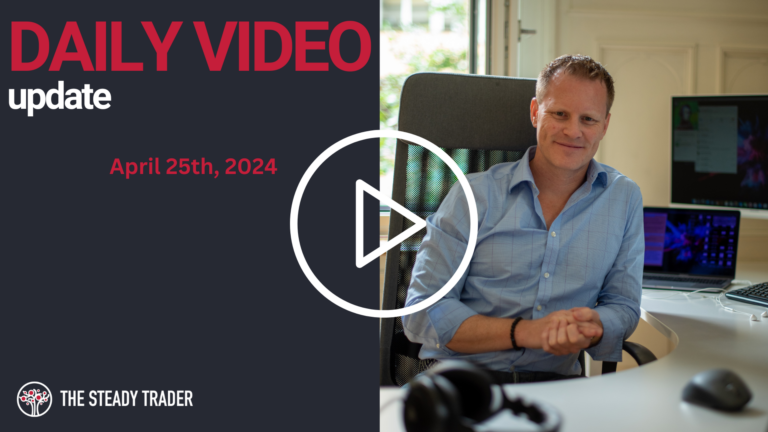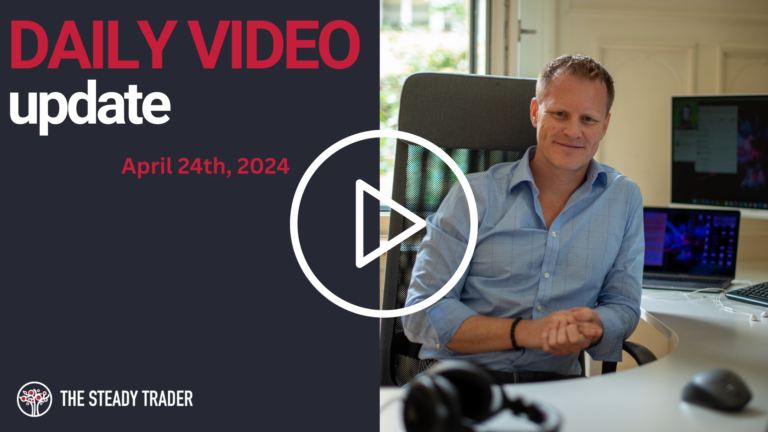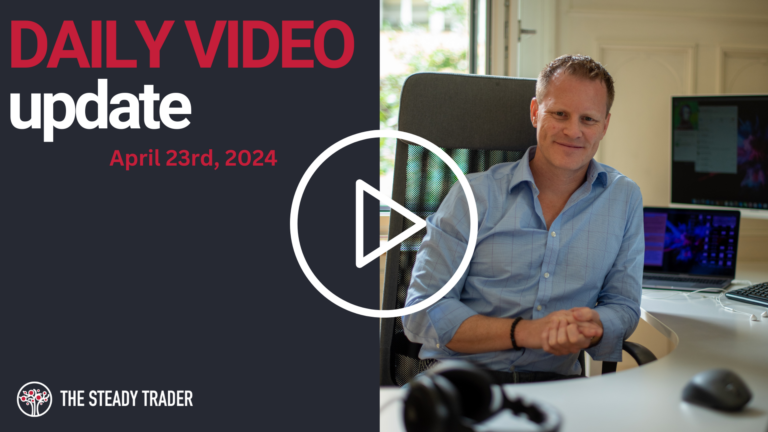Have you ever done something whilst trading and then almost immediately after wondered why on earth you did it? This article will explain what you need to know.
Almost everyone who starts trading quickly discovers that it has the potential to open what can only be described as an ‘emotional can of worms’.
Trading seems to be almost unique in its ability to connect you with every facet of your personality and also any past emotional experiences that bear even the remotest similarity to the trading experience.
It is especially good at revealing those things buried deep in your mind you definitely don’t want influencing your trading.
Once your emotional can of worms is open, your various personality traits and past emotional experiences seem to want to start battling it out for dominance in an effort to control and direct your trading behaviours.
What is Internal Trading Conflict?
Trading is often referred to as an ‘emotional roller coaster’ because of the range of positive and negative emotions you are likely to experience in a single trading session.
Internal trading conflict occurs when you have two or more opposite emotions competing against each other for control of your mind and your trading behaviours.
Since you can’t feel two different emotions at exactly the same moment, but you can switch back and forth between different emotions rapidly, when you have two powerful opposite emotions active they will fight for dominance and create a feeling of internal conflict.
For example, if you have a trade bobbing in and out of profit you may have both your fear of losing and your desire to win active and your mind and body may be switching rapidly from one feeling to the other as the market moves up and down.
Each of these emotions will cause entirely different thoughts to rapidly run through your mind. For example, the thoughts you have associated with a fear of losing may cause you to want an early exit whereas the different thoughts created by your desire to win may be telling you to hold in there and wait.
As you unconsciously switch back and forth between these two emotional states your mind will be put in a state of confusion; you basically end up not knowing what to do for the best and may well do something you later regret or don’t understand.
This is the Internal Trading Conflict at work.
Personality Traits and Internal Conflict
The specific emotions you will feel as you trade are influenced by the various aspects of your individual personality – your personality traits.
For example, a trader who has a strong ‘competitiveness’ personality trait that produces an urgent desire to win may be more negatively affected when a trade is losing than another trader who isn’t as fiercely competitive.
Your various personality traits can contribute to that sense of internal conflict often felt during your trading sessions.
Think about your own personality for a moment i.e. the type of person you are, and then also think back for a moment to your last week or two of trading. I’m guessing you can probably remember clearly at least one occasion when you felt an undeniable feeling of internal conflict and can now connect those feelings to some strong aspect of your personality by answering the question:
“What is it about me that would cause me to feel that way?”.
It is useful to understand also that your various personality traits can be more or less active depending on the situation you are involved in and it is likely that the most dominant and active of these traits will have the most influence on the actions you take in that situation.
The Opposing Forces of the Conflict
So what are the most common personality traits that tend to be the opposing forces in this internal trading conflict?
To make the answer to this question apply directly to you it is important to understand yourself pretty well but let’s list a few of the pairs I see regularly opposing each other in the minds of my coaching clients:
- Need to win/Difficulty losing
- Need to be right/Unable to admit when wrong
- Need to be seen as competent/Difficulty accepting responsibility for own actions
- Desire to succeed/Fear of failure
I don’t have space here to go into these in depth but let’s take a moment to consider just the first pair on the list.
Imagine a trader with a strong ‘need to win’ personality trait (is that you?) finding themselves faced with a losing trade. This specific situation would be quite an emotional challenge since it is in direct conflict to their ‘winner’ personality trait.
The desire to want to enjoy those ‘winner feelings’ is in direct opposition to the ‘loser feelings’ they are likely to be currently experiencing when looking at a losing trade. This opposition creates the internal trading conflict which may become such a strong emotional battle that it leads to the trader taking knee-jerk actions such as exiting the losing trade for a big loss.
Trading Split-Personality – two sides of you at war
Your opposing personality traits contribute to this internal trading conflict but there is another very important aspect of the mind that is involved as well.
To understand this other contributor to the internal conflict we can use a conceptual model of the mind from coaching known as ‘parts’. In this model we imagine ourselves being a collection of numerous different ‘parts’ and not just one single ‘person’.
It’s kind of like having lots of different ‘experts’ working away in your brain each performing a specific task in order to produce a specific external behaviour. Sometimes these ‘experts’ work well together and sometimes they don’t.
In this conceptual model we assume that each ‘expert’ is an individual ‘part’ of your mind that has a specific solution to a particular type of problem or challenge.
This is just a very simple way to think about how the mind works and how your various ‘experts’ behave towards each other – they can be either in harmony or in conflict.
So where do these various ‘parts’ come from?
A new part can be formed in response to a specific need at any time during your life.
As an illustration let’s say a new trader is in a losing trade for the first time. As a survival response to try and prevent damage to his account, and more importantly perhaps escape the unpleasant feelings he is experiencing, he immediately exits the trade and takes the loss.
If this ‘strategy’ works to remove the ‘unpleasant feelings’ that he was having while the trade was in a loss then his mind will record this scenario and the action used and create a ‘in a losing trade do this’ psychological response.
If our trader repeats this strategy it may become a ‘fixed’ behaviour solution which we can then call a new ‘part’ i.e. the ‘in a losing trade exit and take the loss’ part. This part is stored away for next time the trader is in a similar trading situation.
This process of developing mental strategies to deal with repetitive situations is perfectly normal. Often though, many of the parts formed in the past to deal with childhood events are still there years later when we are adults.
The parts may appear to be dormant but they are just waiting for circumstances to occur that are similar to those that existed when they were created. When such circumstances occur the associated part will activate but the behaviour it produces may no longer be useful in the current situation – unfortunately your mind may not realise this!
Let’s assume that as a very young child our new trader learned that when he didn’t get his own way if he had an angry tantrum his parents would give him what he wanted. This then became his default ‘strategy’ for getting what he wanted and created a ‘part’ in his unconscious mind.
Now as he trades, when things don’t go his way or he doesn’t get what he wants from a trade it is likely that old ‘angry tantrum’ part will be triggered and he will again throw an angry tantrum.
With this example we can understand how this idea of ‘parts from the past’ being triggered by current events can cause you to react in certain unhelpful ways to specific trading situations. There are often times when a ‘part’ that was useful in the past gets triggered again but produces a behaviour that is not useful for the current situation!
This is simply your unconscious mind, driven by your survival mechanism, looking for the fastest way to avoid a perceived threat from the markets and finding a strategy from the past that worked in a related situation – but the part doesn’t know the solution is no longer useful.
What our trader does in these circumstances will depend on our trader’s ability to understand what is happening and take steps to resolve the internal conflict before it results in a poor decision and a unhelpful knee-jerk reaction that is likely to harm both his trading account and his trading confidence.
Now you know what parts are, how they are formed, and how they can be active but in conflict it’s over to you to discover which parts you have that might be involved in your own internal trading conflict.
Taking Sides – how to overcome your internal trading conflict
We have seen that internal trading conflict can be influenced both by your personality traits and by the strategies (those ‘expert parts’ stored in your unconscious mind) you have learned for dealing with specific situations – especially those perceived as threatening.
It is worth taking time to analyse your own personality traits so you can discover if any of them are likely to become opposing emotional forces whilst you are trading.
Also, take time to think about past situations that have some similarity to trading scenarios to discover whether you have ‘expert parts’ being triggered that may now be producing unhelpful behaviours.
As a first step, I would like you to become more aware of any personality traits that are likely to be involved in your own internal trading conflict so I have prepared an easy to use free worksheet for you that will help you.
You can download the worksheet here and get started right now.
Les Meehan is a peak performance trading coach and founder of the RightMindTrading.com Academy. He can be contacted by email at les.meehan[@]rightmindtrader.com



